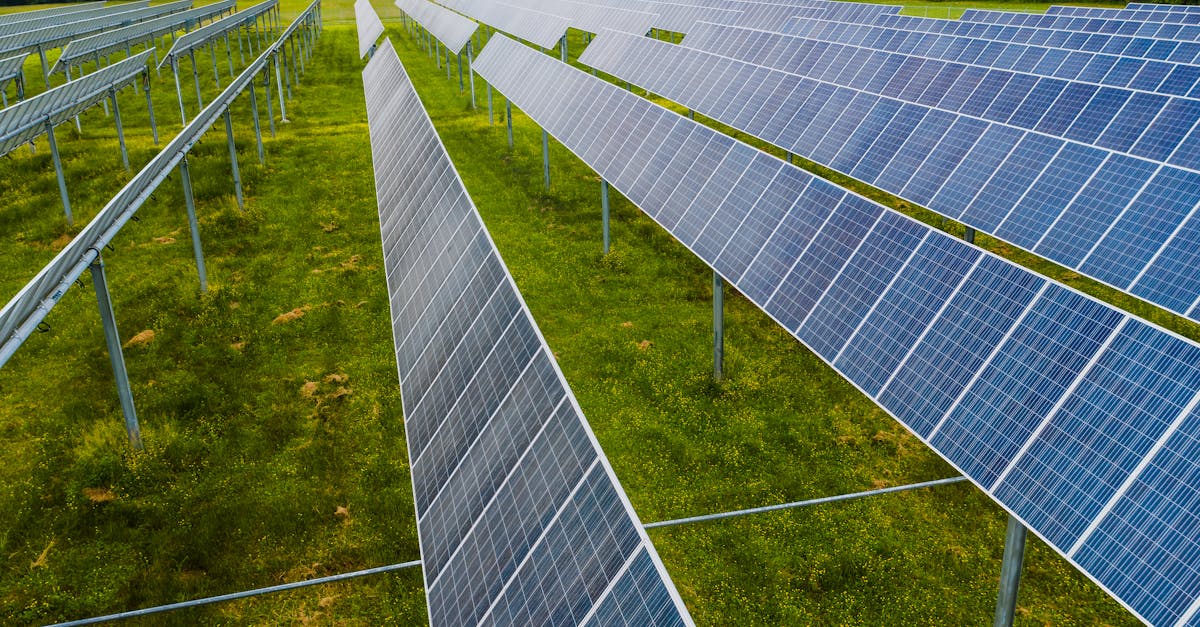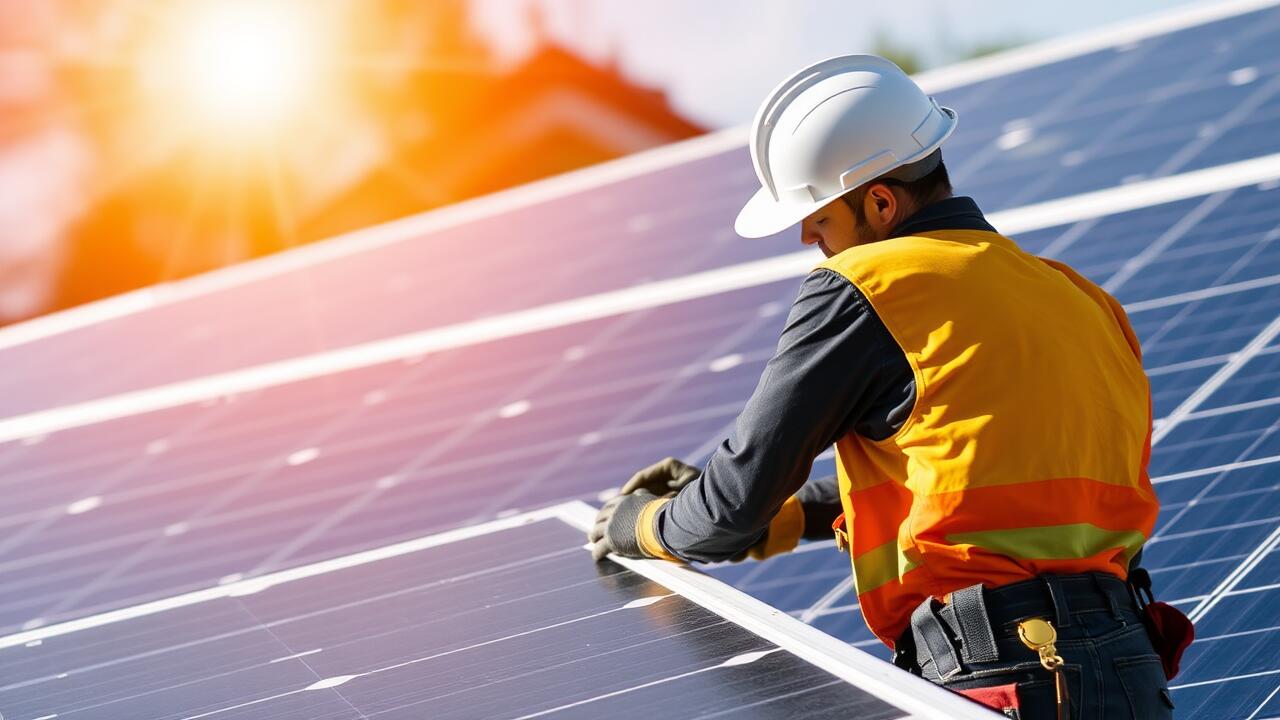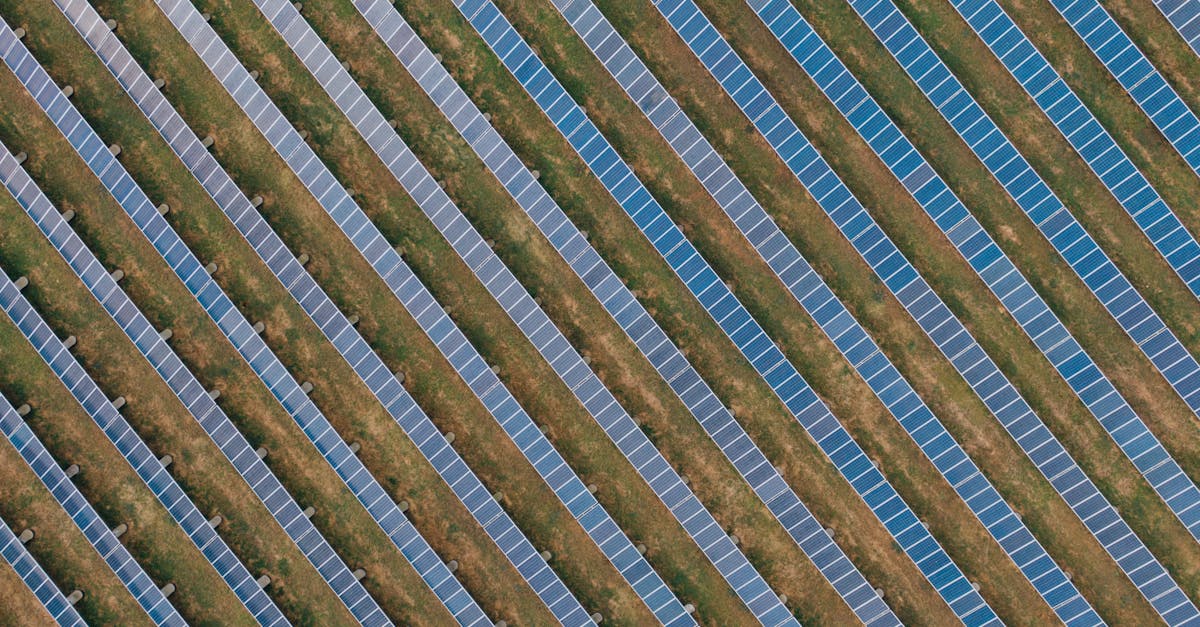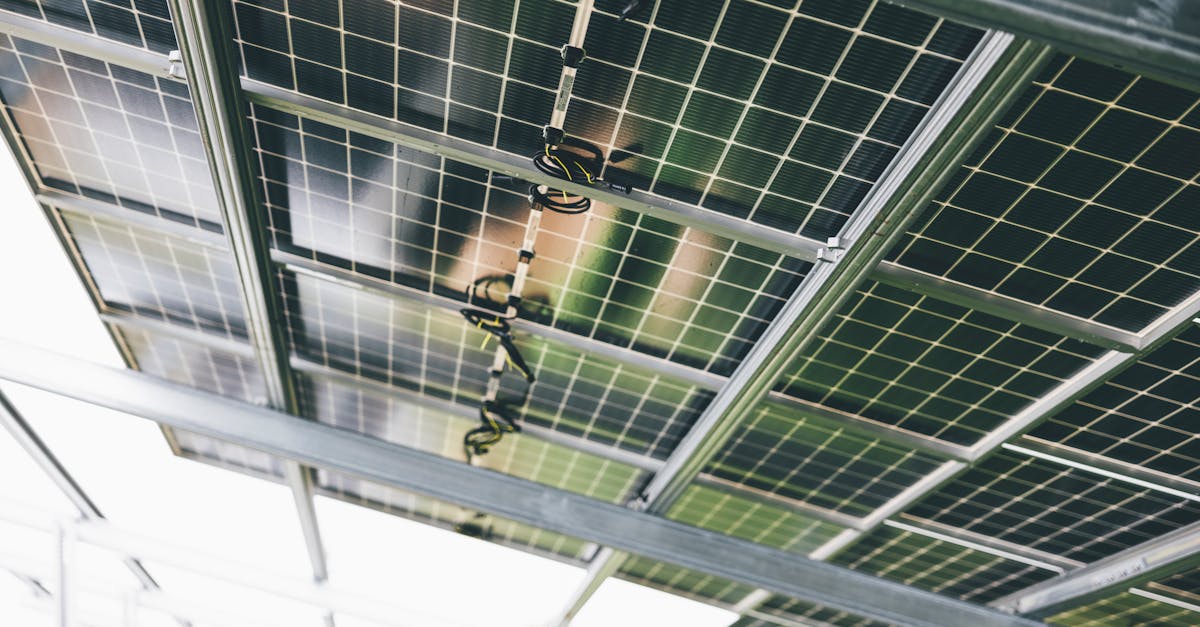
Enhancing Energy Storage Solutions
Energy storage plays a crucial role in maximising the efficiency of your solar panel system. With advancements in battery technology, adopting modern storage solutions can significantly enhance your system's performance. Lithium-ion batteries, for example, have become popular due to their high energy density and longer lifespan compared to traditional lead-acid options. By incorporating these batteries into your setup, you can store excess energy generated during the day for use during the night or on cloudy days. This not only improves your energy independence but also reduces reliance on the grid.
Solar panel system upgrades can also be supported by integrating compatible inverters that facilitate better energy management. Inverters convert the DC electricity produced by your solar panels into AC, suitable for household use. Smart inverters offer additional functions, including real-time monitoring and the ability to optimise energy usage based on demand. This synergy between energy storage and smart inverters ensures that your system operates at peak efficiency, allowing for greater overall energy production and reduced wastage.
Selecting the Best Batteries for Your System
Choosing the right batteries for your solar panel system is crucial for maximising its efficiency. Lithium-ion batteries are often preferred due to their high energy density and longer lifespan compared to traditional lead-acid options. Additionally, they can discharge deeper, allowing for more usable energy. When considering Solar Panel System Upgrades, it is essential to match the battery capacity to your energy requirements, ensuring that your system can store enough power for use during non-sunny periods.
Another important factor is the charging speed and cycle life of the batteries. Faster charging capabilities can improve the overall performance of your solar panel system, especially in areas with variable sunlight. Furthermore, a longer cycle life means fewer replacements, contributing to overall cost savings. Researching different brands and understanding your specific energy needs will help you make informed decisions when selecting batteries for optimal performance.
Incorporating Smart Technology
Integrating smart technology into your solar panel system can significantly enhance its performance and efficiency. Smart inverters play a crucial role by optimising energy production based on real-time data. These devices adjust the energy flow to match consumption patterns and ensure a higher yield. Moreover, they can also provide insights into the system's operation, offering proactive diagnostics that prevent potential issues before they escalate. This level of monitoring contributes to the overall reliability and longevity of your solar installation.
Another aspect of incorporating smart technology involves the use of solar monitoring systems. These systems allow users to track energy generation and consumption through user-friendly interfaces, often accessible via mobile apps. By analysing this data, homeowners can make informed decisions regarding their energy usage and identify times when they can maximise solar energy consumption. This proactive approach not only enhances the effectiveness of solar panel system upgrades but also empowers users to take control of their energy consumption and efficiency better.
Benefits of Solar Monitoring Systems
Solar monitoring systems provide real-time data on energy production, allowing homeowners to track the performance of their solar panels efficiently. By analysing this information, users can identify any issues or inefficiencies that may arise. Early detection of performance drops means timely repairs or adjustments can be made, ensuring optimal power generation. These systems often offer historical data comparison, enabling users to assess how seasonal changes affect energy output.
Integrating solar monitoring solutions can significantly enhance the effectiveness of solar panel system upgrades. Users can make informed decisions regarding additional installations or adjustments based on the insights gained. Many modern systems also offer remote access via apps, which adds convenience for users who wish to monitor their energy production while on the go. This technology empowers homeowners to maximise their solar investment, leading to increased efficiency and cost savings over time.
Evaluating Panel Quality
When considering the quality of solar panels, it is essential to examine their efficiency ratings, durability, and warranties. High-efficiency panels convert a greater amount of sunlight into usable electricity, which directly impacts overall energy production. Additionally, panels constructed with robust materials tend to withstand harsh weather conditions, ensuring longevity and consistent performance. Investing in solar panel system upgrades can enhance energy output and provide a more reliable renewable energy source over time.
Another critical aspect of evaluating panel quality is the manufacturer’s reputation and customer reviews. Established brands often have a track record of reliable products and customer support. Checking certifications such as those from the Intertek or UL can provide further confidence in the panels' performance and safety standards. As solar technology continues to evolve, quality assessments should not only focus on current offerings but also consider future developments in the industry, making it vital to keep informed about the latest advancements and trends in solar panel system upgrades.
Key Features of High-Performance Panels
High-performance solar panels exhibit distinct features that significantly enhance their efficiency and energy output. One crucial aspect is the use of high-efficiency solar cells, such as monocrystalline silicon, which typically convert a greater percentage of sunlight into usable electricity compared to other types. Additionally, features like advanced anti-reflective coatings optimise light absorption, allowing panels to capture more solar energy even in low-light conditions. These factors contribute to a more robust performance, especially in areas with limited sun exposure.
Another important consideration is the durability and resistance of the panels to environmental stressors. High-performance models often feature reinforced frames and tempered glass, ensuring they withstand extreme weather conditions and maintain longevity. Investing in these robust panels not only ensures a consistent energy supply but also complements Solar Panel System Upgrades designed to maximise overall efficiency. Choosing panels with warranties that cover a longer period further guarantees reliability and assurance in your solar investment.
FAQS
What are some effective ways to enhance the energy storage of my solar panel system?
To enhance energy storage, consider investing in high-quality batteries, optimising your battery management system, and using energy storage solutions that can efficiently store excess energy generated by your solar panels.
How do I choose the best batteries for my solar panel system?
When selecting batteries, look for options with high energy density, long cycle life, and compatibility with your existing solar setup. Lithium-ion batteries are often recommended due to their efficiency and durability.
What smart technologies can I incorporate to improve my solar panel efficiency?
Incorporating smart technologies such as solar monitoring systems, smart inverters, and energy management apps can help optimise energy usage, track performance, and adjust settings for improved efficiency.
What are the advantages of using solar monitoring systems?
Solar monitoring systems provide real-time data on your solar panel performance, helping you identify and address issues promptly, optimise energy production, and maximise the overall efficiency of your solar system.
What should I look for when evaluating the quality of solar panels?
When evaluating solar panel quality, consider key features such as efficiency ratings, warranty length, performance under various weather conditions, and certifications from recognised testing laboratories. High-performance panels typically offer better durability and energy output.


